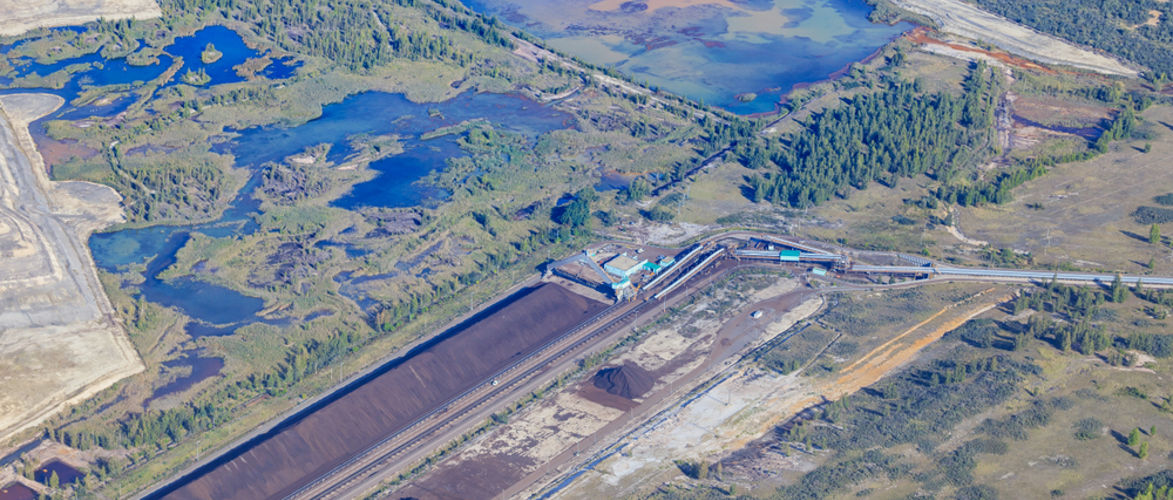A comment by Dagmar Henn.
They are pure devil’s play, fossil fuels,a conviction currently expressed by many; they must be banished as quickly as possible and at all costs. If necessary, such statements can be found again and again, one has to fall back on donkey carts or bicycles. Most importantly, no more coal, no more gas, no more petrol. All we would have to do would be to restrict ourselves, to do without, then that would work.
Such fantasies presuppose two kinds of complete ignorance – about the historical significance of the discovery of fossil energies and about the logistical prerequisites of a modern society. Because none of the advocates of this opinion would actually want to exchange their lives for the ones they would have had to lead in the time before the use of fossil fuels, a life like at the beginning of the 19th century.
At that time, at least in Germany, the use of hard coal was still in its beginnings; the use of crude oil was only developed in the 20th century. Transportation took place on water, by animal power or even by humans; the pure state of innocence, so to speak. Mine pumps were operated by horses which spent their entire lives running in circles, barges wanting to travel against the current were often pulled upstream by human power.
Nine tenths of the population lived in rural areas and worked in agriculture. Most farms, if one can call them that from today’s perspective, had at most two hectares of arable land, not enough land to keep draught animals, which is why the plough often had to be pulled by the farmer themselves; depending on the region, they were not even farmers, but day labourers or even serfs – serfdom finally disappear in Germany beginning 1918.
It was difficult to secure survival with the available possibilities; chemical fertilizers were still unknown, and organic fertilizers were accessible only to those who could own significantly more land. But yes, this existence was almost an ideal of sustainability; people just starved to death or died of all kinds of infections, but there was no plastic waste and no antibiotic residues.
For centuries, it was the limitation of available energy that prevented faster development. A mixture of chance and necessity ensured that these limits were crossed. Three different discoveries intertwined, taking place in England. The reason for this was the necessity – for many purposes charcoal was needed at that time; England had to import most of the wood for the charcoal, which became very expensive as a result, so they tried to switch to hard coal. Pumps were needed to mine the coal, and the steam engine was first and foremost an invention to operate mine pumps.
However, hard coal could not be used for all purposes because it contained sulphur. This was not only a problem for iron production; barley roasted over hard coal spoils the beer due to its sulphur taste. It was the brewers who found out how to make coke from coal. When this new fuel was then used in the blast furnace, the iron became cheaper; cheap enough for the first iron bridge to be built in Shropshire at the end of the 18th century, which a few years earlier would have been an excessive waste of a valuable material. Hard coal, steam engines and cheap iron were the trinity that drove the industrial revolution. Railways and steamboats are their children.
They created the conditions that made metropolises grow and distances shrink; none of those who today like to see themselves as citizens of the world realise that this would be impossible if their movement were limited to the speed of the early 19th century, usually their own pace.
The second major boost to industrial development was the introduction of electricity. Factories whose energy supply was based on steam engines could not be built according to the production process, but had to follow the structure of the power supply – the movement of the steam engine piston was transmitted to the individual machines by shafts and belts, which could therefore not be released.
With electric motors this was different, only then was an invention like the assembly line possible (which, by the way, came from the slaughterhouse in Chicago and was triggered there by a constant lack of manpower).
In those supposedly paradisiacal prefossil times, the growth of cities came up against a natural limit. Rome, the first city with over a million inhabitants in European antiquity, still needed a whole empire to stuff its hungry mouths, but already needed a spacious water supply and traffic restrictions. London, which was the first European city in modern times to break through this barrier again, is a port city and could be supplied from the hinterland by an extensive network of canals – the same applies, incidentally, to the large Chinese cities. It was railways and later lorries that made possible the birth of cities with ten, twenty or even thirty million inhabitants, even off the coast or navigable rivers. Urbanity, as we know it today, is simply not possible without fossil liberation.
The idea that today’s cities can be supplied with horse-drawn carts or donkey carts is absurd. Not only are there not enough horses or even donkeys to pull the carts, or coachmen to steer them; the existing horses also do not belong to those breeds that are suitable for such activities. Brewery horses and field horses have little to do with the objects of longing of bourgeois girls, and people’s dealings with working animals have little to do with the love of animals that is cultivated today; scrawny naggers and worn out, blear-eyed shingy morays are more likely to be found in societies that depend on the physical strength of draught animals and use them until the last second.
Today’s animal lovers would faint with horror; their affection comes more from Marie Antoinette and her little lamb than from the cold-blooded relationship with the farm animal. In fact, the absence of farm animals in everyday life is the basis for the widespread form of animal love today, including its vegan outgrowths. Like the cosmopolitan, it is through and through a product of fossil society.
But let us go back to our rural paradise. Most of the inhabitants would be poor or even in bondage; only a very small part would have the standard of living that we fantasize today for the early 19th century, because we know it from films and books. The life of rural poverty can only be found in a few stories from pre-March, or in small pearls such as the ‘Schulmeisterlein Wutz’ by Jean Paul, who would have loved to have all the great works of the Enlightenment in his bookcase, but has to write them himself because he cannot pay for them… Relationships of inclination, by the way, were the exception at that time; where land was involved, it was married after fields, which was still common in some regions well into the 20th century.
The nobility married according to the stud book, the bourgeoisie according to possessions, serfs only according to the permission of the lords; marriage for love is an achievement of the working class, whereby the component marriage was a must only for the state. Not only the standard of living, but also the degree of personal freedom is closely linked to what is called the development of productive forces.
As long as nine out of ten are concerned with scraping their livelihoods from the ground, even literacy remains incomplete; of what use would it be? It was the mechanization of agriculture that liberated us from the socage; today fewer people are farmers than they chose of their own free will, and ten years of schooling are the lower limit of the usual social education…
Elsewhere, there is a societal debate about how many hours of work people should spend when the next leap in productivity development is implemented; if you realize that all the major shipping systems (including the Amazon monster) are disguised instruments of economic planning; if you are confident that truly powerful alternatives to coal and oil are being developed; if you have a vision of a future that will bring a better life for the majority of people. The German bourgeoisie is looking back, not for the first time, wishing the rabble the 18th century, but expecting to remain in the 21st century. This is quite in line with an oligarchy that likes to turn back the wheel of history, because in the meantime not only politically but also technically mankind’s next step forward will pass over it, and whose passion to make education, health, water and air the basis of profit goes hand in hand with the attempt to curb the forces of production (there are seldom lower investment rates than today).
Because the question of who produces what for whom cannot be asked, and because every expectation of a positive future inevitably leads to the threshold of today’s property system, because it has to be done as if corporate interests were inviolable, every outlook for tomorrow is darkened and a bitter moral of renunciation is promoted, which is in no way inferior to the famous sermons of fasting of the Augustinians.
The industrial revolution itself is declared a sin, and instead of improving society, it is the pursuit of an immaculate soul, vegan and penitent, declared a human ideal.
It would be more than overdue to demand a future again; to demand a good life for all those who are fobbed off with poverty pensions and low wages; a functioning education system, a modern infrastructure, a public administration capable of fulfilling its tasks; the list is long and is getting longer every day. Humanity would have to renounce one thing above all else – the class of oligarchs who fatten up on it and cover it with wars.
+++
Thanks to the author for the right to publish the article.
+++
Picture source: Mike Fuchslocher/ Shutterstock
+++
KenFM strives for a broad spectrum of opinions. Opinion articles and guest contributions do not have to reflect the editorial point of view.
+++
You like our program? Information on support options can be found here: https://kenfm.de/support/kenfm-unterstuetzen/
+++
Now you can also support us with Bitcoins.

BitCoin address: 18FpEnH1Dh83GXXGpRNqSoW5TL1z1PZgZK










Kommentare (0)